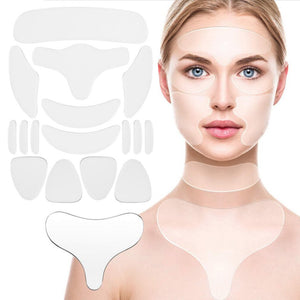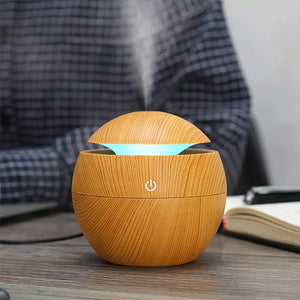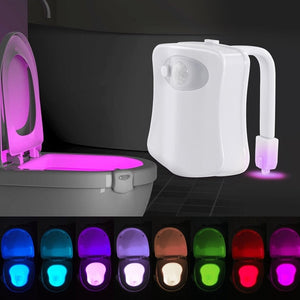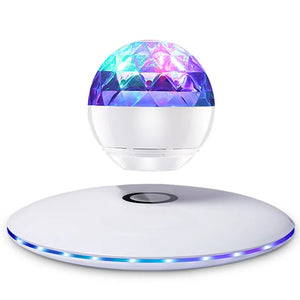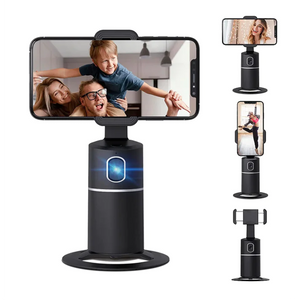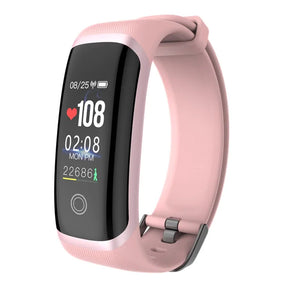
Do you wake up feeling refreshed, or are you hitting the snooze button multiple times before finally dragging yourself out of bed?
If it’s the latter, you might be sleep deprived, and you're far from alone.
The staff at Nifty Cool Stuff – our online lifestyle store – believes it’s important to know the basics of sleep deprivation in order to recognize the symptoms and how to avoid it.
What Is Sleep Deprivation?
Sleep deprivation occurs when you don’t get enough rest to feel alert and refreshed. How much sleep a person needs varies based on age and individual biology, but the American Academy of Sleep Medicine recommends that adults get 7 to 8 hours per night. Despite this, more than a third of adults fall short of that goal.

Some people may believe they function well on less sleep, but even in those cases, subtle declines in memory, attention, and concentration can occur without being immediately obvious.
Signs You Might Be Sleep Deprived
You could be sleep deprived if:
- You need multiple alarms or someone else to wake you up.
- You sleep in more than two hours longer on your days off.
- You find yourself dozing off during the day—especially in inappropriate situations like driving or during meetings.

Why Sleep Deprivation Matters
Lack of sleep doesn’t just make you groggy—it can significantly impact your health and daily functioning.
Short-term effects include slower reaction times, reduced focus, and memory issues. Even one night of poor sleep can impair your ability to think clearly and make decisions. When sleep deprivation becomes chronic, the effects can be even more serious.
Sleep deprivation has been linked to:
- Decreased motivation to exercise
- Increased appetite and weight gain
- Heightened risk of anxiety and depression
- Skin aging and a dull complexion
- Higher risk of motor vehicle accidents—responsible for roughly 1 in 9 crashes

Over time, inadequate sleep raises the risk of chronic health conditions, including heart disease, high blood pressure, and Type 2 diabetes.
The Power of Quality Sleep
Getting enough quality sleep benefits nearly every aspect of your well-being. Physically, sleep helps repair your heart, muscles, and other tissues. It supports immune function, hormone regulation, appetite control, and even fertility.
Mentally, good sleep improves learning, memory, decision-making, and creativity. It’s also crucial for emotional regulation and mental health.

Making Sleep a Priority
Many people underestimate the impact of sleep on their daily lives. If you're aiming to reduce stress, lose weight, or build healthier habits, sleep is a foundational piece of the puzzle.
Think of it this way: if you need 7 hours of sleep and only get 6, that’s like skipping an entire night of rest every week.
Tips to Improve Sleep Quality
Finding what works best for your sleep can take some trial and error, but these evidence-backed tips can help:
Create a Sleep-Friendly Environment
- Make your bedroom a quiet, cool, and dark space.
- Block out light with blackout curtains.
- Keep the temperature around 68°F (20°C) if possible.
- Use white noise machines or apps to block disruptive sounds.
- Use your bed only for sleep to train your brain to associate it with rest.
- If your pet disturbs your sleep, consider setting up a separate bed for them.

Set a Consistent Sleep Schedule
- Go to bed and wake up at the same time every day, even on weekends.
- Build in time to wind down before bed, especially if you work late or swing shifts.
Develop a Bedtime Routine
- Exercise for at least 20 minutes during the day—a walk counts.
- Avoid heavy meals, caffeine, and alcohol within a few hours of bedtime.
- Start relaxing about an hour before bed with activities like reading, stretching, or meditating.
- Head to bed when you begin to feel sleepy.

Limit Screen Time
Electronic devices can be major obstacles to good sleep. The bright light and engaging content can keep your brain wired long after you’re physically tired.
To avoid this:
- Set your phone to “Do Not Disturb” an hour or two before bed.
- Avoid texting, scrolling, or watching stimulating videos close to bedtime.
- Aim to shut off screens at least 30 minutes before sleeping.
That said, some technology can support better sleep—such as meditation apps or soothing soundtracks—as long as you're not doomscrolling through social media at the same time.

Better Sleep, Better Life
Prioritizing sleep is one of the simplest, most impactful things you can do for your physical and mental health. It helps you feel more energized, focused, and emotionally balanced.
Over time, good sleep can also reduce your risk of serious illnesses and help you live a longer, healthier life.

So if you’ve been burning the candle at both ends, now’s the time to start treating sleep as essential and not optional. Nifty Cool Stuff features sleep aids to help the cause, so give us a click and see which of them can work for you.











